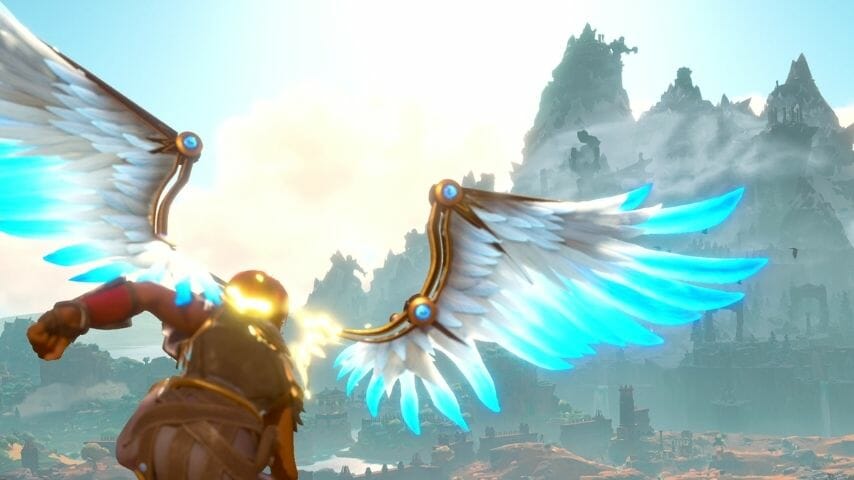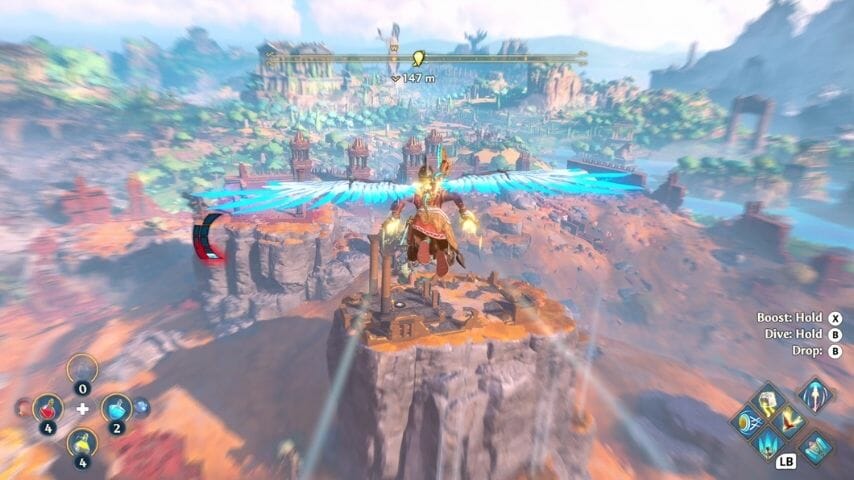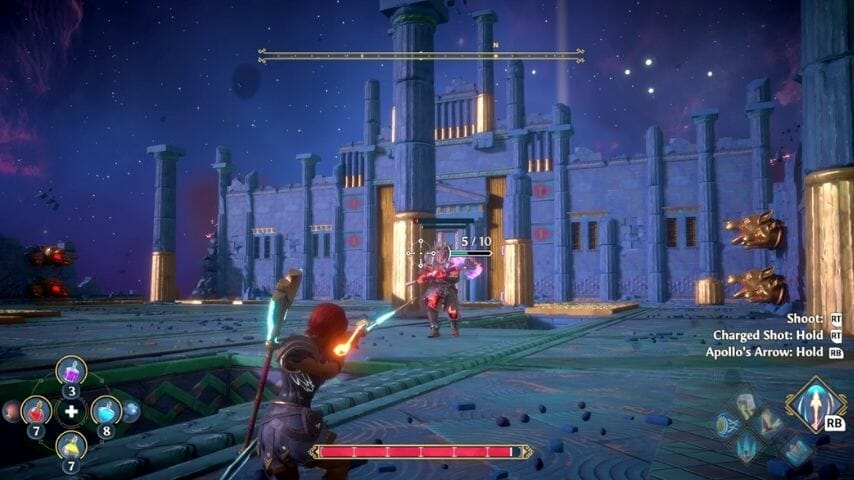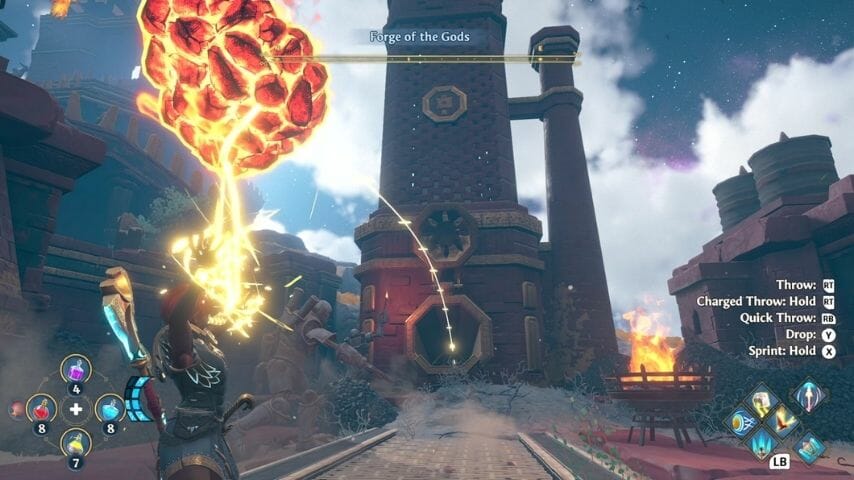Immortals Fenyx Rising Illustrates the Delicate Balance Between Inspiration and Innovation

Innovation in art is a delicate thing. It’s a gamble—a risk that reaps the greatest reward when it exists in the relatively small space between tried and true and fatally flawed. When a work in any medium gets it right, it’s an achievement that often changes the trajectory of the genre it inhabits. In recent years, The Legend of Zelda: Breath of the Wild is perhaps the greatest example of a game to do this, and it did so to nearly unanimous applause. With it’s release back in 2017 came raised expectations for what open-world action adventure games could be. It’s a title that shaped not only the types of games people want to play, but the types of games developers want to make. In Immortals Fenyx Rising, we get our first real glimpse of the shift Breath of the Wild created.
However, if you are thinking Immortals is merely a clone of Breath of the Wild, I’m here to reassure you it absolutely isn’t. While I feel it would be a disservice to not mention Breath of the Wild’s obvious influence—especially since, hey, it’s not a bad game to be compared to—in the few hours I spent with Immortals, I could see that rather than try to stand in the same spot as Breath of the Wild, Ubisoft Quebec picked up the torch and kept going.
Immortals Fenyx Rising follows our hero, Fenyx, as they traverse six realms of ancient Greece attempting to save the gods from the treacherous giant Typhon. While the demo I played took place entirely in The Forgelands—a golden-hued valley occupied by automatons and ruled by Greek god Hephaestus—from the land’s highest plateaus you could scope out the various areas waiting to be explored, from the mountainous King’s Peak to the lush Grove of Kleos. Quite simply, the game is vast and gorgeous and, as the employee I spoke with pointed out with a laugh, you can tell Ubisoft Quebec’s time spent on Assassin’s Creed: Odyssey truly allowed them to perfect the art of creating a stunning Greek vista.

While the scenery was the first thing to catch my eye, it is merely one of many things that both surprised and pleased me during my time with Immortals, the second most noteworthy being the game’s overall tone. Prior to my playing Immortals, I had seen the E3 reveal as well as had heard the game’s original title, Gods and Monsters. I went in expecting something more serious—expecting that Breath of the Wild treatment. But whereas Nintendo leaned into minimalism and created a world that feels quite somber, Immortals embraces vivaciousness; this is a land that feels lived in and abundant. You’ll encounter random Greek soldiers whom you assist in fights, enter in timed aerial events, solve countless puzzles, explore ruins, engage in intense combat, and undertake far more quests and challenges than I could have possibly stumbled upon in my time with the game.
Furthermore, it feels a bit more structured. There seems to be a more linear story and your entire journey is guided by two narrators, Zeus and Prometheus. While Fenyx appears to be the strong and silent type, Zeus and Prometheus pick up the slack in the dialogue department. Their conversations are cheeky, lighthearted, and highly reminiscent of the Fable series, though I was told the main inspiration for their banter was actually none other than The Princess Bride. All of this is then punctuated by energetic and adventurous music that transitions seamlessly from one theme to the next, and is spectacularly composed by Gareth Coker of Ori fame.
 Keep scrolling for more great stories.
Keep scrolling for more great stories.


